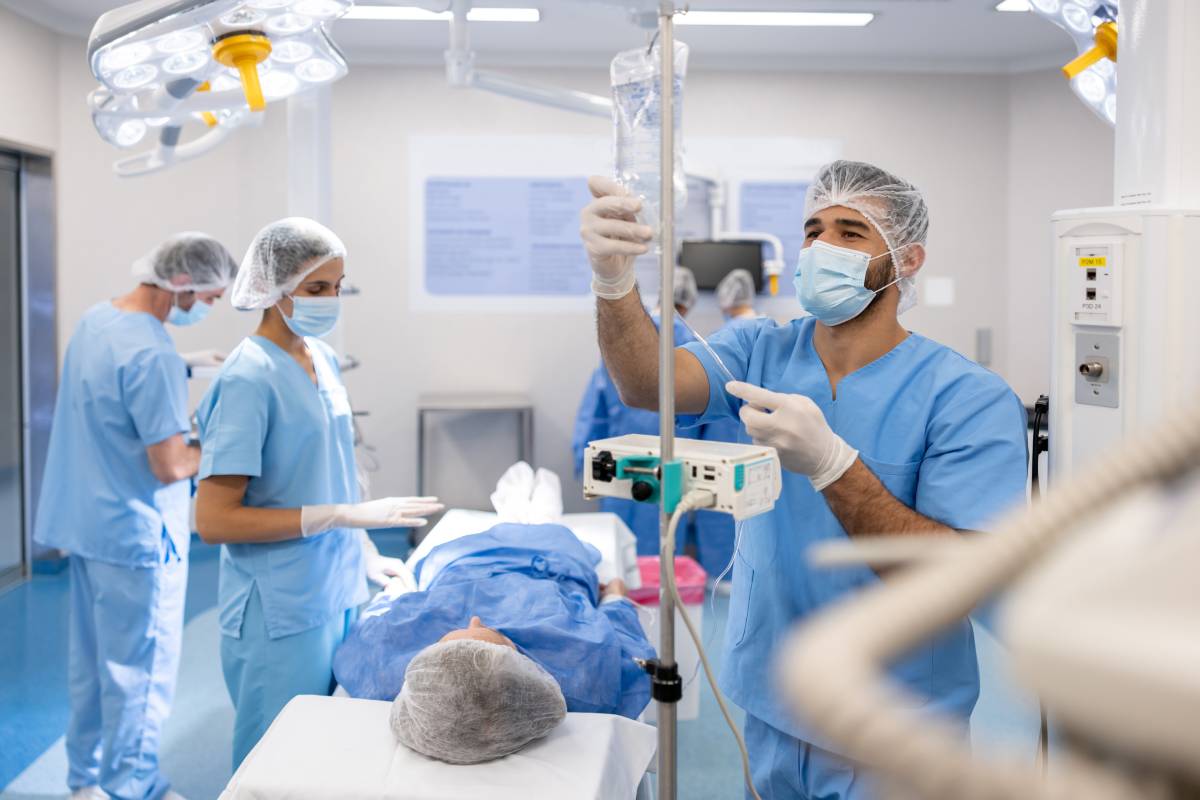Trends in Waking Up During Surgery

Waking up during surgery, despite being under anesthesia, is a clinically challenging phenomenon. Though relatively rare, it remains an area for which improvement is important and necessary. Understanding the trends, challenges, and solutions associated with waking up during surgery is crucial for ensuring patient safety and well-being.
Estimates of the incidence of having some type of awareness during surgery vary widely 1. One peer-reviewed 2017 narrative review states that according to previous research, it could affect up to 1 in 600 people 2, while another documents incidences of 0.1-1% 3. Most studies report occurrences to be approximately 1 in 1,000 people 4.
There are several underlying causes for awareness under anesthesia. In some cases, inadequate dosing or delivery of anesthesia may be responsible. Factors such as drug interactions, patient tolerance, and variations in metabolism can all contribute. Certain medical conditions or anatomical factors may make patients more resistant to anesthesia, increasing the risk of waking up during surgery. Research trends also show that certain procedures, such as emergency surgeries, especially c-sections or trauma surgery, are associated with a higher risk of waking up due to the need of lower anesthesia doses sometimes need to be lower for these procedures. Patients with a medical history of chronic substance misuse, from opioids to alcohol, are also at higher risk of suffering from awareness under anesthesia 5.
If waking up does occur during surgery, patients may experience different levels of awareness and memory. Some people may have a vague memory of the event while others have flashbacks but no specific recall 5.
Advancements in anesthesia monitoring technology have also played a pivotal role in detecting, managing, and preventing intraoperative awareness. Continuous monitoring of vital signs allows anesthesiologists to closely track a patient’s physiological responses throughout the surgical procedure. Techniques measuring brain activity to estimate anesthesia depth can help refine anesthetic management. Real-time feedback from monitoring devices enables prompt adjustments to anesthesia levels, reducing the likelihood of awareness while maintaining patient safety 6.
Furthermore, the use of multimodal anesthesia techniques may help reduce the incidence of waking up during surgery, among other benefits. Combining different types of anesthesia, such as inhalational agents, intravenous drugs, and regional anesthesia, can provide a more comprehensive and balanced approach to anesthesia management. By targeting multiple pathways involved in consciousness and pain perception, multimodal anesthesia reduces the reliance on any single agent 7.
To address concerns related to waking up during surgery, it is important for healthcare providers to communicate with and educate their patients before surgery. Preoperative discussions between patients and their healthcare providers regarding anesthesia options, potential risks, and postoperative expectations help alleviate anxiety and empower patients to actively participate in their care 8.
Despite these advancements and strategies, preventing intraoperative awareness remains a complex challenge with no definitive solution. Individual variability in patients’ response to anesthesia makes it impossible to completely eliminate the risk of waking up during surgery. However, ongoing research efforts continue to explore novel approaches, such as pharmacogenomics and personalized anesthesia regimens, to optimize anesthesia delivery and to ideally lead to downward trends in the incidence of waking up during surgery.
References
1. 30,000 people a year wake during surgery. Available at: https://www.nbcnews.com/health/health-news/30-000-people-year-wake-during-surgery-flna1c9460984. (Accessed: 17th March 2024)
2. Tasbihgou, S. R., Vogels, M. F. & Absalom, A. R. Accidental awareness during general anaesthesia – a narrative review. Anaesthesia 73, 112–122 (2018). doi: 10.1111/anae.14124.
3. Akkerman, R. D. L. & Knape, J. T. A. [Waking up during general anaesthesia]. Ned. Tijdschr. Geneeskd. (2015).
4. Intraoperative and Anesthesia Awareness – StatPearls – NCBI Bookshelf. Available at: https://www.ncbi.nlm.nih.gov/books/NBK582138/. (Accessed: 17th March 2024)
5. Waking up during surgery: Likelihood and what to expect. Available at: https://www.medicalnewstoday.com/articles/waking-up-during-surgery. (Accessed: 17th March 2024)
6. Anesthesia Awareness: What It Is, Causes & Prevention. Available at: https://my.clevelandclinic.org/health/articles/anesthesia-awareness. (Accessed: 17th March 2024)
7. Brown, E. N., Pavone, K. J. & Naranjo, M. Multimodal general anesthesia: Theory and practice. Anesth. Analg. (2018). doi:10.1213/ANE.0000000000003668
8. Waking Up During Surgery – What Happens If You Do | MFTM. Available at: https://www.asahq.org/madeforthismoment/preparing-for-surgery/risks/waking-up-during-surgery/. (Accessed: 17th March 2024)
